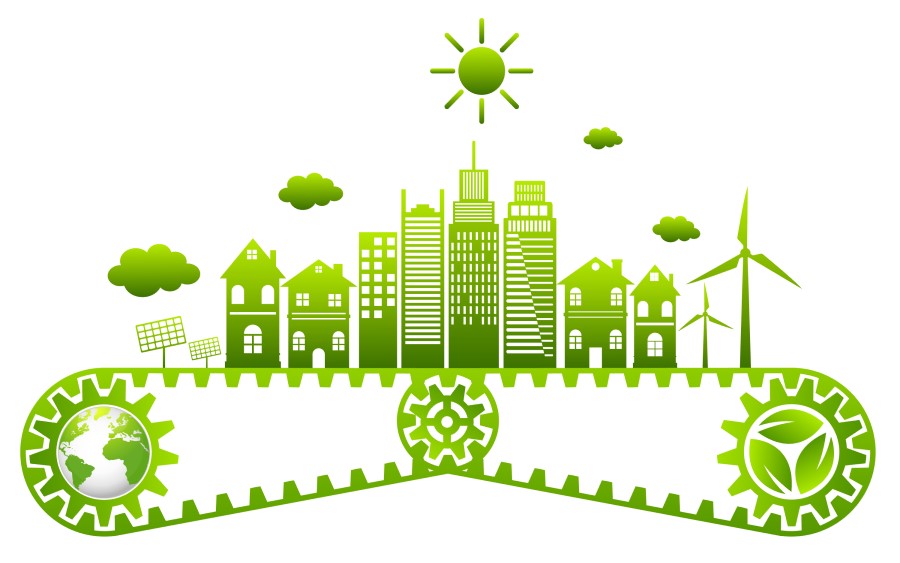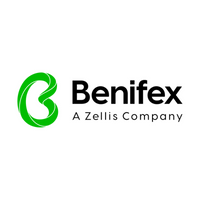How employee expectations of a more responsible and sustainable strategy are changing benefits

Creating a joined-up financial wellbeing strategy to improve financial resilience is the title of Benefex's director of wellbeing Gethin Nadin's session at the virtual Employee Wellbeing Congress on 9 September, 10:15–10:35. Register here to attend.
Consumer trends
Across most major countries, people want to learn how to live more sustainable lives. As many as 93% of people surveyed say they have a general concern for the environment, according to the study Going Green by Southern Cross University. This growing concern for the world we live in is making consumers think more about the purchases they make. According to New York University’s Centre for Sustainable Business, there has been a 50% growth in consumer-packaged goods from 2013 to 2018 that came from sustainable products. Products marketed as sustainable are growing 5.6 times faster than non-sustainable products. More than 80% of consumers now say that it is important for companies to design environmentally friendly products, according to a 2019 survey from Accenture.
People are turning towards brands to help them live more sustainable lives. In Futerra’s survey of consumers in the UK and USA, they found that 96% of people feel their own actions like donating, recycling and buying ethically can make a difference. But consumers need help making more environmentally friendly choices. As a result, the push to be more sustainable is in full swing for UK businesses. According to HSBC’s Made for the Future report, around half of employers are planning to increase their environment-related spending before 2021.
Employee expectations
In early 2020, Aon’s Benefits and Trends Survey found that, “clear and positive environmental and sustainability policies” was seventh in the top employee expectations, ahead of emergency childcare, mindfulness and eldercare support. These changing expectations are mirrored in Peakon’s 2020 Employee Expectations Report. It identified that sustainability is one of the four biggest employee expectation trends. Since 2019, Peakon found that employee discussion on environmental topics has risen by 52%.
Your employees are the same consumers that are pushing for large-scale change in how we become a more sustainable society. Workers are making it quite clear that they want their employers to improve policies concerning the environment. In fact, 70% of employees now say they are more likely to work for a company that has a strong green footprint, and surprisingly, nearly half would even accept a pay cut to work for a more responsible and sustainable business, according to a 2019 survey conducted by Swytch, a blockchain-based clean energy platform. This is leading to some major changes in employees’ expectations of existing benefits.
Retirement and financial wellbeing
In June this year, film and TV actor Richard Curtis launched a new campaign aimed at encouraging and helping employees to move £3tn of UK pensions out of industries that harm people and the planet. The ‘Make My Money Matter’ campaign encourages employees to look at investments that do good in the world, and identifies which funds are helping to tackle the climate crisis. The campaign found that despite 70% of UK employees saying they wanted their investments to be responsible, only £2 out of every £10 was invested in this way.
In early 2020, investors started to pivot quite significantly towards more conscious investing. Between January and May this year, 14 out of 17 Environmental, Social and Governance (ESG)-focussed funds outperformed the S&P 500. By April, a record £969 million in UK-authorised funds with a sustainable theme were bought. Where employees put their savings, investments and pensions now will shape the world they retire into. Employers should ensure they are offering ESG choices and encourage employees to think of their money in this way. The Make My Money Matter campaign argues that moving savings to more sustainable funds can be 27 times as effective at reducing our carbon footprint than eating less meat, using public transport, reducing water waste and flying less, combined.
Sustainable alternatives
Like most employee benefits, take up tends to increase when staff see others using them and benefitting from them. This behaviour can be replicated by reward and benefit teams in the way they communicate and promote alternative choices that are more sustainable. Despite falling since 1990, UK CO2 emissions stood at 354 million tonnes last year, with transport being responsible for a third of that figure. Cleaner commutes are a great starting point when considering more sustainable benefits.
During the coronavirus pandemic, sales of cycling equipment through employer-sponsored schemes hit record highs. A remarkable 1.3 million Brits bought a new bike during lockdown – that’s 5% of UK consumers. In response to this boom, the Department for Transport pledged £225m in emergency funding to make cities safer for cyclists. Over the next five years, cycling to work will become even more common.
In the US, employer Clif Bar & Company offer employees $500 towards a bike if they use it for commuting. As one of the most popular employee benefits, cycle to work schemes are already a sustainable benefit available to many employees. Bicycles can also be bought from local bike shops to support the growing desire for consumers to spend money where they live.
Locally sourced food deliveries have been on a steady rise over the last few years, as more than half of consumers say they want to buy local food. Eating locally is a powerful way to live more sustainably. Due to coronavirus, local food delivery boxes saw an unprecedented increase in demand this year. Data from 101 UK veg box schemes found that sales had increased by 134% from April 2020. If waiting lists were met, an estimated 5.3 million veg boxes would have been delivered in one six-week period at the start of lockdown, according to the Food Foundation’s COVID-19 Veg Box Scheme report. Employers should think about how they can offer employees the chance to buy more locally, from fresh fruit and vegetables to local beer.
Sustainability and wellbeing
The sustainability market in the US is expected to reach $150 billion by 2021. The pandemic has highlighted the impact that our decisions and habits can have on the environment, and public support for sustainability has never been as high as it is now.
The way that employers promote and deliver wellbeing in the workplace can be key to becoming more sustainable. Our wellbeing is highly dependent on a healthy environment, so employee benefits that encourage more exercise and healthier eating tend to be beneficial to the environment too. Economic security is financial wellbeing. Altruism is community wellbeing. Green spaces and clean air contribute to emotional wellbeing.
There are very strong links between wellbeing, sustainability and economic prosperity, so when designing your employee benefits or wellbeing strategies for next year, consider all the ways sustainability can form the backbone of them all. Not only will this make you stand out as an employer of choice, but it’s simply the right thing to do for our organisations, our employees, and for the future of our environment.
The author is Gethin Nadin, director, employee wellbeing at Benefex.
This article is provided by Benefex.
Register to attend the virtual Employee Wellbeing Congress 2020.
Supplied by REBA Associate Member, Benifex
The home of award-winning employee benefits, reward, recognition, & communications.







